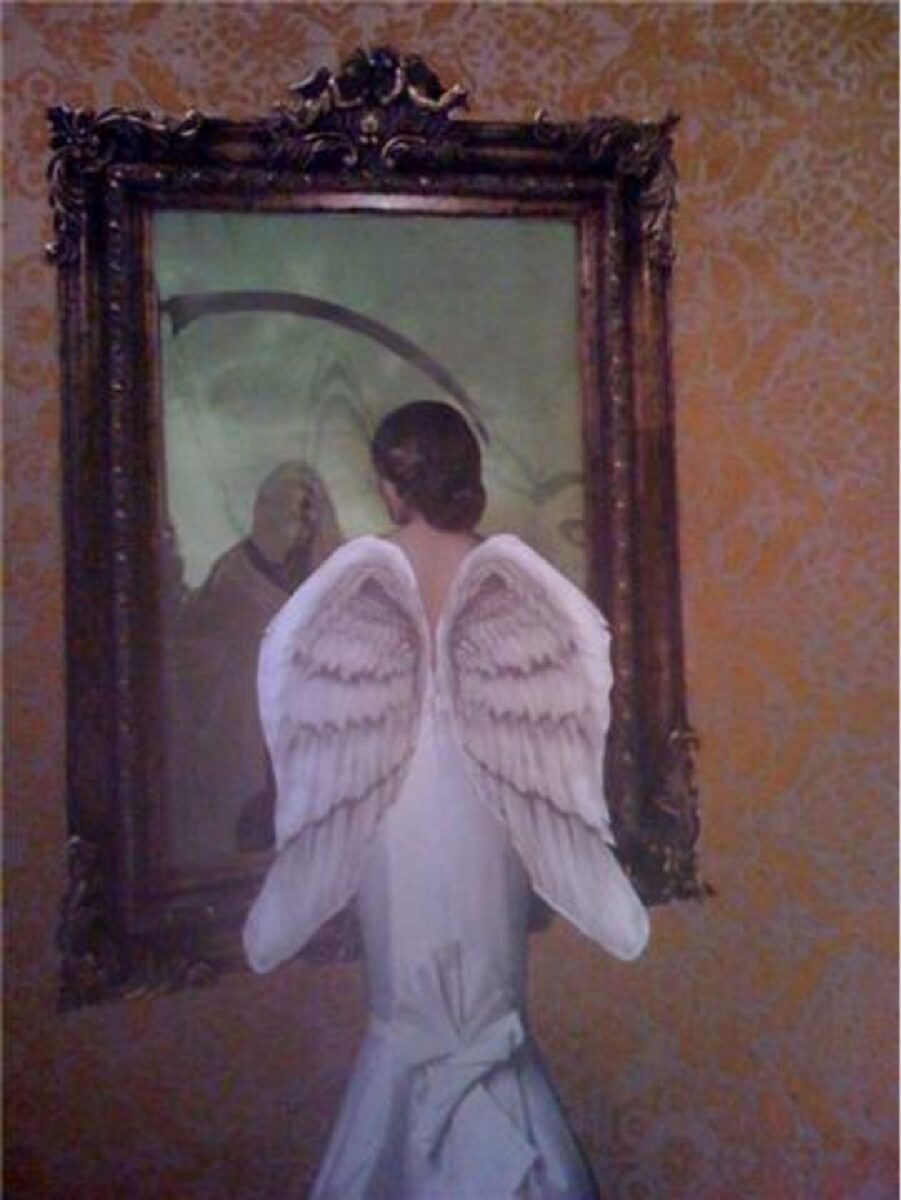The Mirror of Perspective
It seemed to me that the only people this lady now had contact with were those who took care of her in the nursing home, and members of the medical profession, people of whom she spoke very fondly. She seemed desperately lonely, and was very welcoming and enthusiastic when I arrived to have a chat with her. Throughout our relatively brief conversation, she spoke of many things, her husband; what she had previously done for a living; the home which she had left behind, but there was one thing she said which had a profound impact on me, and which would drastically change my view of death. In between anecdotes about her husband’s hobbies and her late brother in-law she said, ‘Tonight, before you go to bed, pray for me. Pray that I won’t wake up tomorrow. I don’t care whether it’s upstairs or downstairs, I just don’t want to be on this earth.’ When asked why, she described the severe pain that she constantly suffered and made it clear that she had enjoyed her life and lived it to the full. She no longer felt that she had anything to live for, and she made it clear that she was ready to pass away.
My feelings following this request were, at first mild shock, then sadness, then reflection. After consideration, I no longer felt the sadness. I felt understanding. What this elderly woman was saying seemed fairly reasonable considering the circumstances. Here was a lady who had come to terms with her situation and who was totally ready to embrace her demise. She was not afraid, she was not sad, she was just accepting. I greatly admired this. It is easy for everyone to say, ‘Well we all die in the end’, but to actually face your death, and welcome the inevitable is a truly admirable thing. I feel now that to admit that death is something to embrace rather than evade is truly inspirational. And it is a concept that I was introduced to by this wonderful lady.
Death is what we make of it and no one can escape it. Good or bad. Heaven or Hell. An honour or a terrifying necessity. One can embrace it, or one can strive to evade it. I now feel that it is important for everybody to at least try to reflect on their own perspective of death and I encourage them to at least consider an alternative view. Death is a huge part of medicine, and although it falls to medical professionals to try and fight death, ultimately we must all succumb to it. It is important, I feel, that doctors understand that there comes a time when little else can be done for a patient, and that the only thing left to do is to admit defeat and embrace the inevitable.
Of course death is not always a good thing, far from it. But I wanted to use my creative piece to highlight the fact that death is not always a bad thing, and that perspective can alter the nature of death. The angel portrayed in my piece represents the good side of death, the sense of release and a possible future after death. She represents the comfort and rest that death can bring. Of course however, she is staring into the mirror of perspective, and her reflection represents the darker view of death. The grim reaper represents the fear and horror of death, and the sadness and loss that it can bring. The mirror of perspective offers two different images of death, the good and the bad. Whichever image individuals may have of death, I encourage them to reflect upon their own view, and at least consider an alternative perspective.

I found this picture quite interesting as it showed an alternative perspective on death and it really pertains to the issue of euthanasia. I really appreciate Holly’s use of a mirror of perspective using an angel on one side of the mirror and a grim reaper on the other side to show the differing views of death. I think this piece emphasizes the importance of embracing death rather than running away from it because it will eventually happen to all of us.
This makes you question your opinions on euthanasia and the current views that the UK healthcare system holds. The grim reaper almost always portrays death, however here it could instead mirror this woman’s life. A poor quality of life clearly has a huge impact on this person.
This is a very thought provoking piece. Maybe in reflecting and considering alternative perspectives on death we can provide better, more person centred palliative care and realise that death is a very natural thing. Also in viewing death from a different point of view it can help us come to terms with very difficult situations and offer some relief.